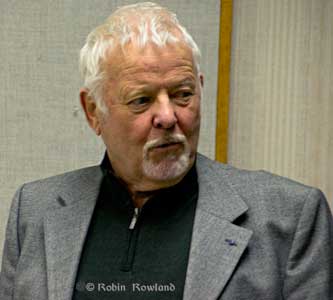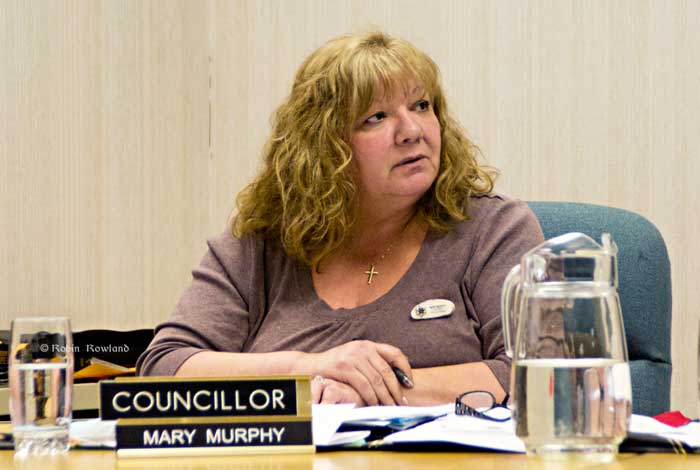Both the province of British Columbia and the Haisla Nation have filed strong objections with the Northern Gateway Joint Review Panel about the panel’s plans to bypass Kitimat for the questioning and final argument phases of its examination of the controversial pipeline project.
At present, the Joint Review Panel plans to hold questioning hearings in Prince Rupert, Prince George and either Calgary or Edmonton and final arguments in Prince Rupert and Calgary/Edmonton.
And if Prime Minister Stephen Harper and Natural Resources Minister Joe Oliver wanted to speed up the hearings and therefore approval of the Northern Gateway project, filings from all sides indicate more time is needed than the two months allocated by the JRP.
The JRP secreteriat plan a meeting in Calgary on May 30 to consider the procedures. The three panel members will not attend. A large number of intervenors or government participants will be represented in person or take part in a conference call.
The lawyer for the Haisla Nation, Jennifer Griffiths, points out in her filing with the JPR, “Prince Rupert is not a logical location for any of the hearings.”
The law firm representing the Enbridge Northern Gateway, agrees with the JRP preliminary decision to hold the hearings in Prince Rupert, Prince George and Calgary or Edmonton. However, Enbridge’s lawyer Richard Neufeld, of Fraser, Milner, Casgrain, makes it clear that for those hearings they are not involved in the operation of tankers carrying the bitumen they sell to customers.
This includes a marine terminal at Kitimat. Northern Gateway recognizes the interest of the public, government, and First Nations in respect of the potential effects of ships calling on the proposed marine terminal, but it is important to bear in mind that Northern Gateway will not own or operate any marine vessels. No approvals are sought, or required, for such operations, as they are subject only to laws of general application which apply to all shipping into or out of Canadian ports.
The Ecojustice group, also known as the Sustainability Coalition, an alliance of the Living Oceans Society, Raincoast Conservation and ForestEthicsAdvocacy wants hearings in Vancouver. The Coastal First Nations also want the hearings in Vancouver.
The Wet’suwet’en want more hearing locations especially in the areas of the proposed route to address those most affected, telling the JRP:
The Office of the Wet’suwet’en (OW) is localized in Smithers, BC, our territory is 22,000 square kilometres and 170 kilometres is proposed to be crossed by NGP prior to crossing the coastal mountain range. The OW requests that hearings be held in Smithers or Burns Lake for full days rather than half days to reduce travel and accommodation costs for intervenors.
In the provincial filing, Christopher Jones, counsel for British Columbia says:
the Province submits that it is essential for a portion of the final hearings to take place in Kitimat. Kitimat is the proposed location of one terminus of the proposed pipeline, and of the proposed marine terminal. As a result, that locality has a particular interest in these proceedings. There are sufficient facilities and transport access to Kitimat to allow the hearings to take place there…..
The letter from Jones goes on to stay that BC believes “the Province would again submit that certain issues should be dealt with at Kitimat” rather than Prince Rupert.
Griffith, of the Vancouver law firm, Donavan and Company, filing on behalf of the Haisla Nation says:
The Haisla Nation questions why no final hearings are proposed for Kitimat. Given the significant new infrastructure associated with the project that is proposed to be located in the Kitimat area, Kitimat is a logical location for hearings. Kitimat is serviced by the Terrace airport, which is only 56 km away. Kitimat also has dock facilities for parties who may be travelling to the hearings by boat. Finally, there is ample accommodation in the Kitimat I Terrace area. Prince Rupert is not a logical location for any of the hearings. The proposed pipeline does not go near Prince Rupert, the terminal is far from Prince Rupert, the tankers would go through Douglas Channel, not past Prince Rupert. Prince Rupert is not accessible to the Haisla Nation by way of a direct flight.
Griffith also says the final arguments should be held either in Kitimat or Vancouver.
The Haisla Nation will have to participate in every aspect of the hearings. Yet the Panel is currently not proposing to hold any of the questioning phase or final hearings in Kitimat. As set out in the comments below, the Haisla Nation is of the view that the questioning and final hearing locations slated for the western terminus of the project should be held in Kitimat, not in Prince Rupert.
Enbridge, on the other hand, through its lawyer, Richard Neufeld, says:
Northern Gateway agrees with the Panel’s observations regarding the need to select hearing venues that are centrally located, have adequate facilities and reasonable transportation access for the large numbers of witnesses and back-up support personal required. Northern Gateway also agrees that Prince Rupert, Prince George and Calgary/Edmonton meet these criteria. Northern Gateway also agrees that if economic issues are to be dealt with in a single venue, it would be appropriate to do so in Calgary or Edmonton. Of the two, Calgary would be a more logical location given its convenience for those participating in that aspect of the proceeding.
Enbridge also has reservations about the process, while it wants the hearings “streamlined,” the company is concerned about the plan to split the hearings into various issues could be “prejudicial” to the project.
Northern Gateway expects that the Panel is considering an issues-based hearing in an effort to streamline the hearing process, and to make the process more accessible to those who want to participate only when specific issues or topics are under discussion. Both objectives are laudable.
However, an issues-based hearing format has the effect of forcing the Applicant to split its case into multiple parts. This is potentially prejudicial to the Applicant – especially if the issues identified for litigation do not correspond to the manner in which the Application has been structured.
The EcoJustice group wants hearings in Vancouver, largely because many of its members are there, with staff lawyer Barry Robinson, saying to the JRP:
The Coalition recommends that the Panel consider adding a fourth hearing location in Vancouver. The Coalition notes that, logistically, many of the witnesses and counsel that would appear in Prince Rupert would travel through Vancouver. If the vast majority of the witnesses and counsel to appear on any given issue will be required to travel from or through Vancouver, the Coalition recommends that the issue be heard in Vancouver to reduce travel costs and related greenhouse gas emissions.
However, the Coalition is sensitive to the needs of local intervenors in the Prince Rupert area and would ask that the Panel use its discretion in allocating topics to be heard in Prince Rupert and Vancouver.
And later:
The Coalition recommends that the Panel consider hearing final argument in Vancouver as a third location. The Coalition is supportive of the Panel providing an option for remote participation.
Coastal First Nations have a similar proposal. Art Sterritt, Executive Director says:
the JRP should consider holding hearings on marine issues in Vancouver with video links to Prince Rupert and Kitimat as a way of reducing the costs to Intervenors (many experts and legal and technical representatives live in the lower mainland) and in recognition that Kitimat is the proposed site of the Marine Terminal and that there are many people in the lower mainland who use the area for recreational, commercial fishing and other uses.
It appears that there will soon be controversy over the time allotted both for questioning and final arguments. The Haisla, other First Nations and Ecojustice and even Northern Gateway appear to want more time for questioning and cross-examination, while, for example, the Canadian Association of Petroluem Producers, the industry representative says it:
is still considering the scope and extent of its participation in questioning during the final hearings. CAPP will work with other intervenors in order to minimize the overall time required for cross examination.
It is clear that Enbridge Northern Gateway is planning tough cross-examination of the intervenors and their evidence:
Northern Gateway intends to cross-examine each of the authors of reports prepared for Interveners opposing the Project, and filed as written evidence. In some cases, the evidence filed with the Panel does not identify authorship, which makes it impossible to specify who will be cross-examined. Materials filed by certain interveners also include information collected through means such as access to information requests, which also makes it impossible to identify who might speak to such evidence if it is allowed to remain on the record.
Northern Gateway’s review of the written evidence filed by interveners has identified approximately forty five detailed reports that have been prepared for this proceeding. Reports of a more basic variety, those that provide general information on traditional use matters and reports of marginal relevance need not be subject to extensive cross-examination by Northern Gateway (if at all). Although no final decision has been made, for planning purposes the Panel should allot approximately twenty hearing days for cross-examination by Northern Gateway. Once a decision has been made on hearing venues and format, we will provide a more definitive estimate to Panel counsel and to counsel for the interveners involved. Where Northern Gateway does not consider it necessary to cross-examine a particular author, we will advise others of that so as to avoid unnecessary expense and inconvenience.
The Coastal First Nations are also planning tough cross-examination:
Coastal First Nations intends to cross-examine NGP, Transport Canada, Canadian Coast Guard, DFO, CEAA (as crown consultation coordinator and expert on environmental assessment methodology) and possibly the Government of B.C. These cross examinations will focus on risk assessment, spill response, measures to prevent incidents, and reduce risk of spills, consequences of spills, and Aboriginal consultation. Naturally, until the JRP approves the government participants we wish to cross-examine, and NGP identifies the witnesses they will present, it is difficult to determine the amount of time needed for cross-examination. It would likely take several hours of cross-examination for each party.
The Hasila say:
The Haisla Nation does not have any input into the proposed general schedule as set out above, but does question the two-month period provisionally allotted for the questioning phase in accordance with the revised Hearing Order. The Haisla Nation anticipates that the questioning phase will require substantially more than two months.
The Wet’suwet’en also object to the short notice given for the May 30 procedural meeting:
The estab!ishment of this regulatory process is insufficient to afford meaningful consultation to the Wet’suwet’en. We are hard pressed to try and prepare our hereditary leaders and clan speakers in such short notice, especially with a long weekend within the timeframe, some of our leaders and speakers are out on the territories preparing themselves for their summer traditional food gathering, and cultural activities. There is insufficient time given to the Wet’suwet’en for this process.
The Wet’suwet’en say (and this likely applies to other BC First Nations) that hearings as proposed could make it difficult to consult with elders saying “discussions with hereditary leaders and elders must take place, as per our custom…”
All of this comes as Prime Minister Stephen Harper and Natural Resoures minister Joe Oliver and many in the right-wing media want the hearings sped up, which means the May 30 meeting may be heated and any decision politically charged.
JRP filings from
Province of British Columbia (pdf)
Haisla Nation (pdf)
Enbridge Northern Gateway Pipelines (pdf)
CAPP (pdf)
Coastal First Nations Great Bear Initiative (pdf)
Office of the Wet’suwet’en (pdf)
Government of Canada (pdf)







